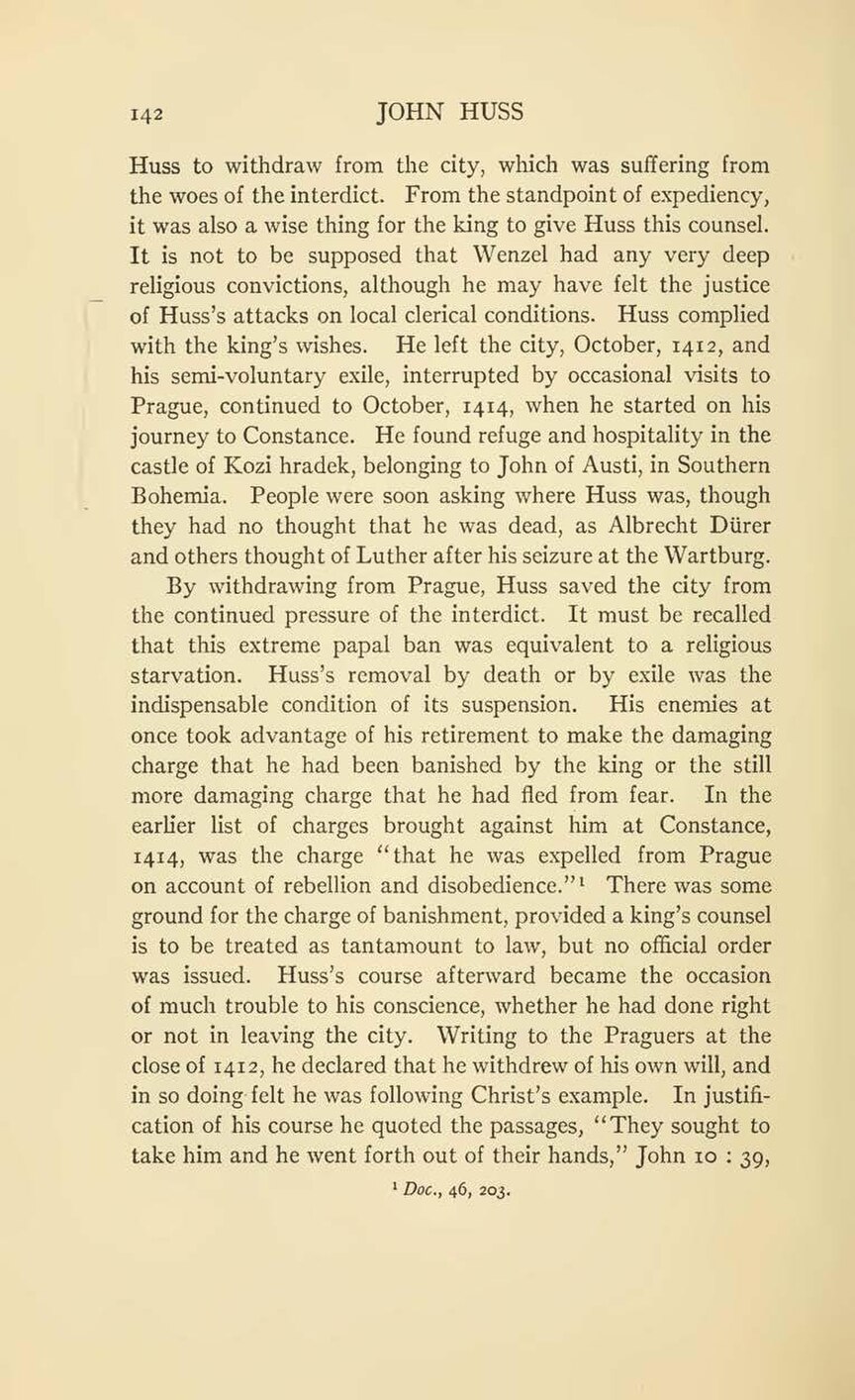Huss to withdraw from the city, which was suffering from the woes of the interdict. From the standpoint of expediency, it was also a wise thing for the king to give Huss this counsel. It is not to be supposed that Wenzel had any very deep religious convictions, although he may have felt the justice of Huss’s attacks on local clerical conditions. Huss complied with the king’s wishes. He left the city, October, 1412, and his semi-voluntary exile, interrupted by occasional visits to Prague, continued to October, 1414, when he started on his journey to Constance. He found refuge and hospitality in the castle of Kozi hradek, belonging to John of Austi, in Southern Bohemia. People were soon asking where Huss was, though they had no thought that he was dead, as Albrecht Dürer and others thought of Luther after his seizure at the Wartburg.
By withdrawing from Prague, Huss saved the city from the continued pressure of the interdict. It must be recalled that this extreme papal ban was equivalent to a religious starvation. Huss’s removal by death or by exile was the indispensable condition of its suspension. His enemies at once took advantage of his retirement to make the damaging charge that he had been banished by the king or the still more damaging charge that he had fled from fear. In the earlier list of charges brought against him at Constance, 1414, was the charge “that he was expelled from Prague on account of rebellion and disobedience.”[1] There was some ground for the charge of banishment, provided a king’s counsel is to be treated as tantamount to law, but no official order was issued. Huss’s course afterward became the occasion of much trouble to his conscience, whether he had done right or not in leaving the city. Writing to the Praguers at the close of 1412, he declared that he withdrew of his own will, and in so doing felt he was following Christ’s example. In justification of his course he quoted the passages, “They sought to take him and he went forth out of their hands,” John 10: 39,
- ↑ Doc., 46, 203.
